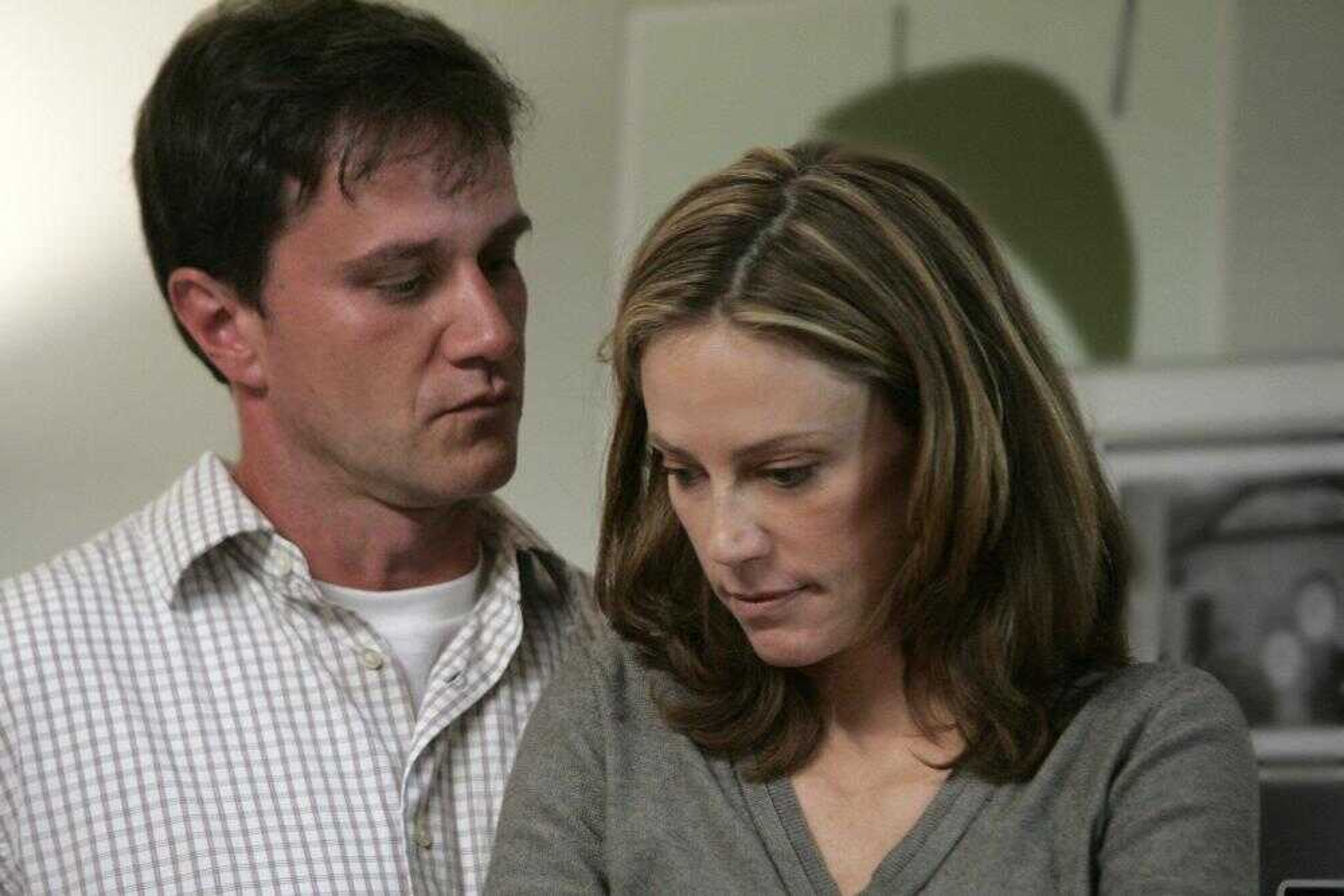HBO's `Tell Me You Love Me,' a drama series about relationships, feels shocking and familiar
NEW YORK (AP) -- Well, you think you've seen everything on TV. Then along comes HBO with "Tell Me You Love Me" to open your eyes. On this spare-no-feelings drama about human relationships, brace yourself to see plenty -- including yourself, reflected in ways that may feel painfully familiar and register more forcefully than you bargained for. My response after watching the full 10-episode season in just three sittings: "I am SO busted."...
NEW YORK (AP) -- Well, you think you've seen everything on TV. Then along comes HBO with "Tell Me You Love Me" to open your eyes.
On this spare-no-feelings drama about human relationships, brace yourself to see plenty -- including yourself, reflected in ways that may feel painfully familiar and register more forcefully than you bargained for. My response after watching the full 10-episode season in just three sittings: "I am SO busted."
I make no prediction how others will receive "Tell Me," and in what numbers. But I see it as the most important drama HBO has introduced since "The Sopranos."
Early reports about the series (premiering Sunday at 9 p.m. EDT) have dwelled on its graphic sex scenes. But the sex only underlines what "Tell Me" is really about. For most of each hour, the characters engage in an even more intense brand of explicitness: Their beyond-the-flesh struggle to preserve, or recover, some measure of intimacy with the partner each of them is committed to.
Which is to say there's lots of talk going on, set against the relatably ordinary lives these people lead:
-- Jamie, a 20-something restaurant chef (Michelle Borth), is betrothed to Hugo, a schoolteacher (Luke Kirby). Sexually, they can't get enough of each other. But their squabbling takes over when they're not in bed.
"Sex ruins everything," pouts Jamie, blending insight with pettishness. "Good sex just hides everything that's bad about a relationship."
-- Carolyn, a mid-30s on-the-fast-track lawyer (Sonya Walger), and her real-estate investor husband, Palek (Adam Scott), seem accomplished in everything they touch, including each other. Except, for a year, they've been trying unsuccessfully to get pregnant. Growing pressure and resentment will push their marriage to the brink.
-- Katie, a 40-ish stay-at-home mom (Ally Walker), and Dave, her salesman husband (Tim DeKay), are terrific parents of two sweet kids. But they've stopped having sex. Neither of them is eager to explore why. Dave doesn't even want to acknowledge any problem.
"I love you," he tells Katie. "Too bad that's not enough."
All six characters find their way to couples counseling with a wise, reassuring therapist, Dr. May Foster (Jane Alexander). Well into her 60s, she enjoys a lusty sex life with her devoted husband (David Selby). Here, too, viewers are made privy.
That's the series in a nutshell, which only does it a disservice by implying some sort of pat formula propels it. On the contrary, "Tell Me" is nothing if not finely wrought and nuanced, shifting between its parallel narratives (each couple seeing Dr. Foster has minimal contact or awareness of the others in this Southern California community) as the universal issues at the series' heart unfold at their natural pace.
But what are those universal issues? With one couple going hot and heavy in the front seat of their car in broad daylight ... another couple hugging the opposite sides of their bed every night ... just what do the characters on "Tell Me" have in common?
To begin with, each of them is healthy, bright, attractive. Each is demonstrably loved.
Partners who may or may not belong together, they are united by a goal that, at times, seems cruelly beyond their reach: fulfillment in monogamy. These are upper-middle-class Americans; we're not talking Darfur-level misery. And yet the series grants them permission to experience fear and pain from the deprivation they feel. (By extension, it grants the viewer similar permission, which helps explain its dramatic punch.)
"Tell Me You Love Me": The imploring title says a mouthful, setting the stage for doubt, disappointment, cross-purposes, disruption. Just note how Dave can tell his wife he loves her, then add defensively, "Too bad that's not enough."
Created by Cynthia Mort, a screenwriter with the sitcoms "Roseanne" and "Will & Grace" among her credits, "Tell Me" gives vivid expression to the plight of characters misreading themselves and the people they're closest to. It charts a struggle viewers will identify with, amid their fascination and unease. (Be careful who you watch this series with, by the way. Any given episode could spark a conversation that goes unexpected, unwanted places.)
"The one thing a therapist can do, in times of darkness, is turn a light on," says Dr. Foster, words that could also be a mission statement for the series. "The trick now is not to be so stunned by the glare that you want to turn it back off."
Watching "Tell Me You Love Me," see how you react when a light turns on.
---
On the Net:
--—
EDITOR'S NOTE -- Frazier Moore is a national television columnist for The Associated Press. He can be reached at fmoore(at)ap.org
Connect with the Southeast Missourian Newsroom:
For corrections to this story or other insights for the editor, click here. To submit a letter to the editor, click here. To learn about the Southeast Missourian’s AI Policy, click here.










